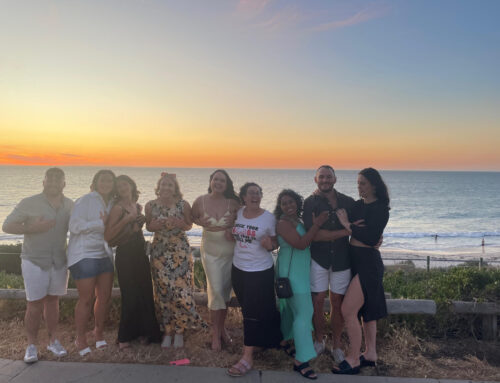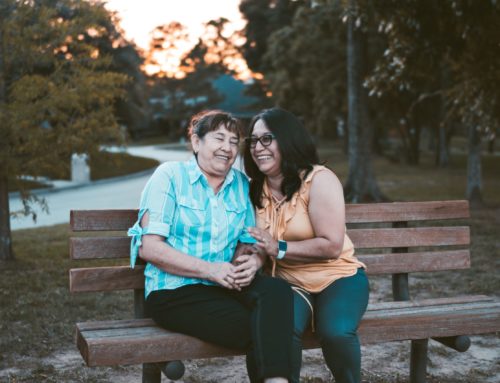A diagnosis of cancer is a life changing experience that causes disruption to almost every aspect of daily living.
While dealing with the physical symptoms and working with your oncology team to determine the best course of treatment, are the first priorities it’s also important to keep in mind your psychological and emotional wellbeing.
Adjusting to a cancer diagnosis takes time and the journey can be jarring, we spoke with Valion Health Clinical Psychologist Rebecca Van Lloy to learn more about what you may experience and the steps you can take to safeguard your psychological wellbeing at this complex time.
Rebecca has worked with cancer patients for more than 10 years and says that while shock and fear are typical first responses these reactions are often followed by a rapid pivot into ‘problem solving mode.’
“Cancer patients have to hit the ground running, there’s a whole new language to learn and so much new information and complex decisions to make, there are lots of appointments and they have to figure out who all the key players are, and all this has to happen around all the usual life commitments like work and dropping kids to school. It’s a massive logistical jigsaw puzzle,” said Rebecca.
While working to solve all these challenges can reduce stress by providing people with a sense of control, it’s also normal to experience a range of complex emotional responses:
- Guilt: ‘I feel bad about how my diagnosis is impacting everyone else in my life”
- Overwhelm: “How am I going to continue to do all the things I’ve always done?”
- Anxiety: “How will I going to talk to my family and manage their concerns?”
- Fear: “Am I going to be okay?”
- Grief: “How and why did this happen to me?”
Rebecca says all these emotional responses are to be expected, a cancer diagnosis takes time to process and that it’s important to make space for that processing to occur.
“A lot of people become task-focused and put pressure on themselves. But it’s okay to be frightened and it’s helpful to learn to be comfortable with being uncomfortable about your diagnosis.”
“We talk about the tyranny of positive thinking and there is a lot of pressure on people when faced with a cancer diagnosis to be strong and stoic.
“There is a place for this, but there is also a place for doubt, uncertainty and fear, and cancer patients need access to a mechanism for supporting them to feel these emotions.”
Empowerment through information
Rebecca says emotional responses ebb and flow according to the different stages of treatment, but she says early information is key to helping patients successfully navigate the complex interplay between their physical and psychological wellbeing.
“Cancer patients do well if they know what to expect, understand what they are experiencing and know whether what they are feeling is ‘normal’. To do this they need information.”
“What we as psychologists do is work with people to set up a foundational framework, so patients understand the interplay between their physical and psychological symptoms.
“This ‘scaffold’ gives people something to stand on. It can help them understand why they’re struggling to manage their stress or emotional responses, in the lead up to a scan result,” she said.
However, Rebecca said that quite often cancer patients don’t have an opportunity to speak with a psychologist or other suitably qualified person until they are having a ‘bad day’, when they might receive a referral from a clinic nurse, oncologist or their GP.
“That’s why services like Valion Health are so fantastic, through early referral to a psychologist patients gain access to a strong foundational structure and positive education and information.
“We help them understand what to expect physically and how this can influence how they think, feel and respond on a psychological level, which can be surprising for people who have never spoken to a psychologist before.”
While early referral to a psychologist is beneficial for people with a new diagnosis, it is also useful at other stages of the cancer trajectory and Rebecca sees some people for a number of years after they have officially finished the active treatment phase of their journey.
“People often assume that getting to the treatment finish line means they will simply be able to return to their life pre-cancer,” she said.
But the fact is life in the ‘post-treatment’ phase comes with a range of psychological complexities and people at this stage of life may experience any of the following on a regular basis:
- struggling with what cancer ‘survivorship’ means
- fear of recurrence/progression
- anxiety in the lead up to regular check ups
- guilt about not yet ‘feeling normal’ and making life assessments
- existential worries
- a sense of indebtedness to people who provided support during treatment
- a desire to change their life and reprioritise
- dissatisfaction with social dynamics
- an urge to redefine boundaries and seek new ways of doing life
At this stage a psychologist can support survivors to develop more assertive methods of communicating with family, friends and employers to enable them find words to describe these new hopes and aspirations as well as achieve them.
“Cancer is a multi-faceted experience and worries can rear up at any time, I was talking to a patient three-years post treatment today and she told me she had a regular check-up approaching that was causing her anxiety to flare up. She felt alone in her experience of fear as her family just kept reassuring her it would be fine and not to worry.
“It was helpful for her to know I understood her experience of living with uncertainty and that she didn’t need to justify her emotional responses,” said Rebecca.
Valion Health’s expert team of psychologists offer support and cognitive coaching to provide you with a range of practical tools and strategies to assist you at every stage of your cancer journey, from diagnosis through to recovery and survivorship. We offer sessions via video or telephone and you can access more information here.



